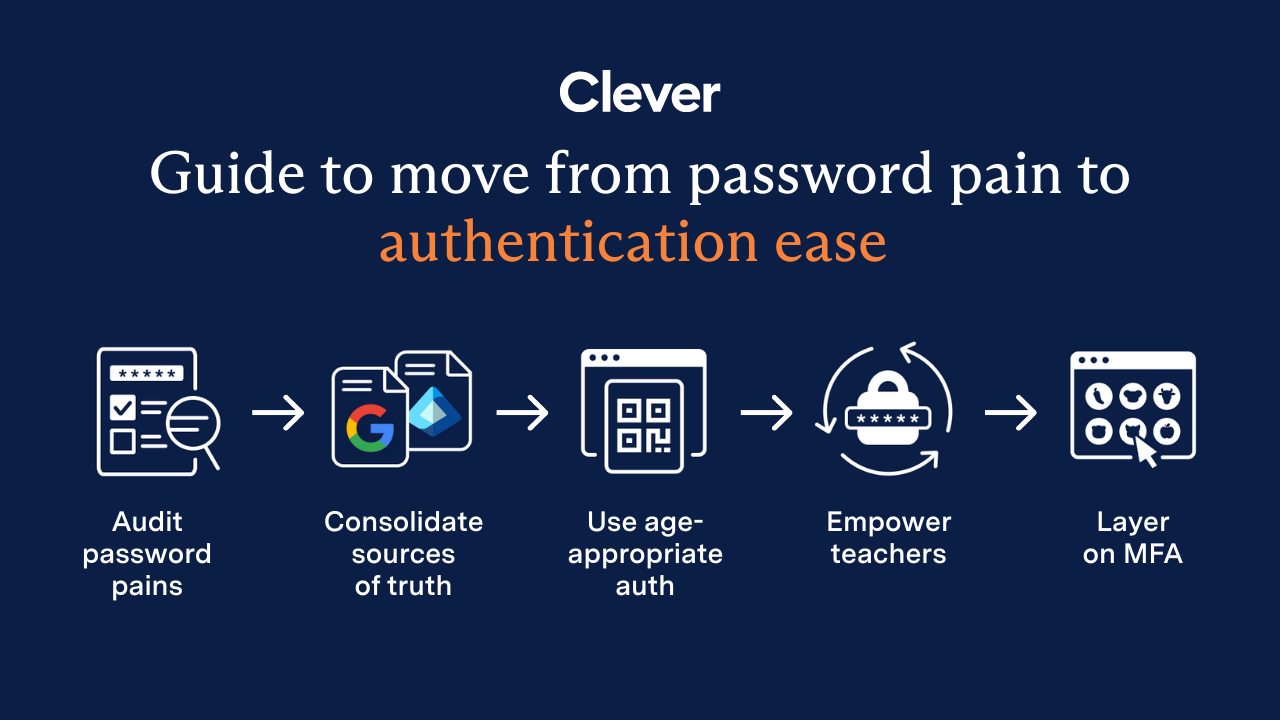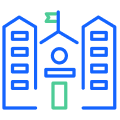Need to change the culture? Then change the language.
Ardee Chua started his day yesterday by visiting one of the 140 schools in the Metro Nashville Public Schools district. There, he found a quiet room, booted up his computer and spent the next hour as a guest speaker on a Clever webinar.
“But the reason I’m at this school today is to ‘Cleverize’ as many of their apps as possible,” he explained.
Ardee serves as Metro Nashville’s senior technical advisor. He’s the bridge between the district’s traditional IT team (think hardware and infrastructure) and the Learning Technology department that focuses on the design of personalized learning through online and blended platforms.
Part of his mission, he says, is “creating a general awareness of what it takes to get software implemented in the schools.”
Cleverizing, he says, is the act of moving one of the district’s 200 apps onto the Clever platform, where he can automate the data syncing required to make sure his students are using the right applications when they show up to class. In other words, Cleverizing an app means one less thing to worry about.
As he speaks, the terms begin to pile up.
“Cleverized.”
“Clever-ready.”
“Clevered.”
Why is Ardee spending his time speaking and teaching the ‘Cleverish’ language?
According to him, Clever has given him an ‘in’ to open discussions with district administrators, about which apps are available to use, what resources are needed and what it takes to get them up and running.
Cleverizing is the act of moving one of the district’s 200 apps onto the Clever platform, where [Ardee] can automate the data syncing required to make sure his students are using the right applications when they show up to class. In other words, Cleverizing an app means one less thing to worry about.
“Clever helps us finally be able to know that data is important – from administrators to teachers. Now they all know what ‘Clever-ready’ means. That becomes a catalyst for other discussions about software. Does it work, how’s it tested and so on.”
“We’ve used Clever to change the language. And if you can change the language, you can change the culture,” he said. “We’ve turned Clever into a verb.”
“It’s bigger than automating our data processes. Now, since it’s all going through a single portal, I can see the data. I can show a given school that 85 percent of its kids have accessed a given app. So they renew it. And if it’s being used less than they’d like, they can move that license to another school who needs it.”
To Ardee, helping administrators and teachers understand their use of applications is the key to Cleverizing even more of them – and he won’t rest until he’s captured them all.
“I’m not an educator. I leave those decisions to educators. Don’t pick a software title because it’s Clever-ready. Pick it because it’ll help the students,” he said. “But if it can do both, I hope you’ll pick the Clever one because it can scale easily and be more successful.”
“This is the 21st century. There are smarter ways that we can do this.”
Hear the rest of Ardee’s story, along with those from other innovative district technology and curriculum leaders that joined us on the “Shift-Control: Two Districts Share Their Insights” webinar. Download a recording here.

More to read

December 23, 2025
End password chaos: The 5-step guide to secure, age-appropriate logins in schoolsSchool IT departments — take these 5 steps to offload the burden of manual password resets while improving cybersecurity for classrooms.
December 10, 2025
Wonde vs. Clever: 2025 Side-by-Side ComparisonWhen it comes to choosing the right edtech platform for your school or trust, there’s a lot to consider. Can it sync reliably with your Management Information System (MIS)? Support secure logins for every user, on every device? Scale across multiple schools without overloading your IT team? Wonde and Clever are two of the most […]

October 21, 2025
Stop the Sticky Notes: Bend-La Pine’s Simple, Secure Fix for Substitute Teacher AccessRobbie Faith, an instructional technology coach at Bend-La Pine Schools, successfully implemented a Clever feature to streamline secure access to digital resources for short-term substitutes, leading to more effective sub planning for teachers, increased confidence for subs, and more consistent learning for students.


















